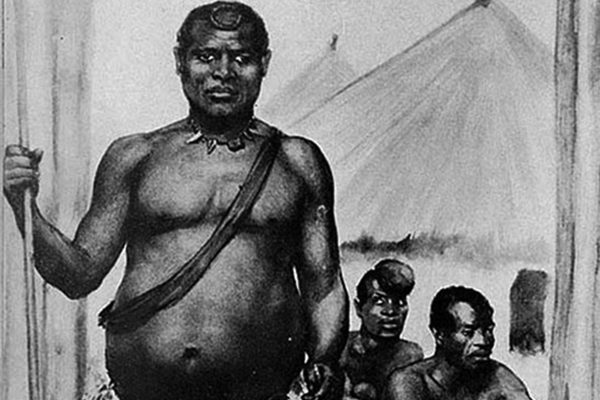
THE Khumalo clan has named 32-year-old Bulelani Colin Lobengula Khumalo as heir apparent to the Ndebele crown, ending speculation over the throne which had remained vacant since the last king was overthrown by colonial settlers in 1893.
BY SILAS NKALA
This came shortly after Stanley Raphael Khumalo, declared himself the new Mzilikazi II king, before he was dismissed as an impostor by family members and government officials.
In a statement yesterday, the clan’s secretary, Ayanda Khumalo, said the king-designate was nominated following wide consultations among family members.
“The crown prince is the son of Prince Humphrey Mcedisi Lobengula, son of prince Patrick Fana Boyd Lobengula, son of prince Rhodes Mpango Lobengula, son of prince Njube Lobengula Khumalo, son of King Lobengula Khumalo, son of King Mzilikazi kaMatshobana,” Khumalo said, but indicated that the date for the coronation would be announced in due course.
“The crown prince is 32 years old, born in Eastern Cape, South Africa and currently unmarried and without any children. His mother is Tembakazi Patience Maxebgana Lobengula.”
The revival of the Ndebele kingdom has gained momentum since 2011 when initially, Peter Zwide Kalanga Khumalo, then seemed to be touted as the heir apparent to the throne before a number of twists rocked the clan with a number of Khumalos disputing his credentials.
“We proactively sought to be as comprehensive and inclusive as possible. For this reason, the outcome of the search is a product of all persons who participated,” Khumalo said.
- Chamisa under fire over US$120K donation
- Mavhunga puts DeMbare into Chibuku quarterfinals
- Pension funds bet on Cabora Bassa oilfields
- Councils defy govt fire tender directive
Keep Reading
“In our search for the crown prince we followed long established traditions and cultural values as follows, in the Ndebele/Mthwakazi tradition and culture, the search and crowning of the king must always involve the chiefs as people’s representatives. The identification of the heir is a Khumalo family matter; however, the coronation is a people-driven process, led by the chiefs. The monarch does not belong to amaKhumalo, but belongs to the people.”
He said the identification of the crown prince and the restoration of the monarch is based on the principle of inkosi izala inkosi which dictates that the suitable candidate should be a direct descendant of the king.
“That you have to have been born to a mother who married to a king, that even if you are the biological son of the king you are disqualified from taking over the throne if your mother was married to a prince before he became king. In this instance, all the king’s sons who were born outside the principle of inkosi izala inkosi do not qualify to be considered for the throne. This principle also disqualifies all of their descendant,” Khumalo said.











